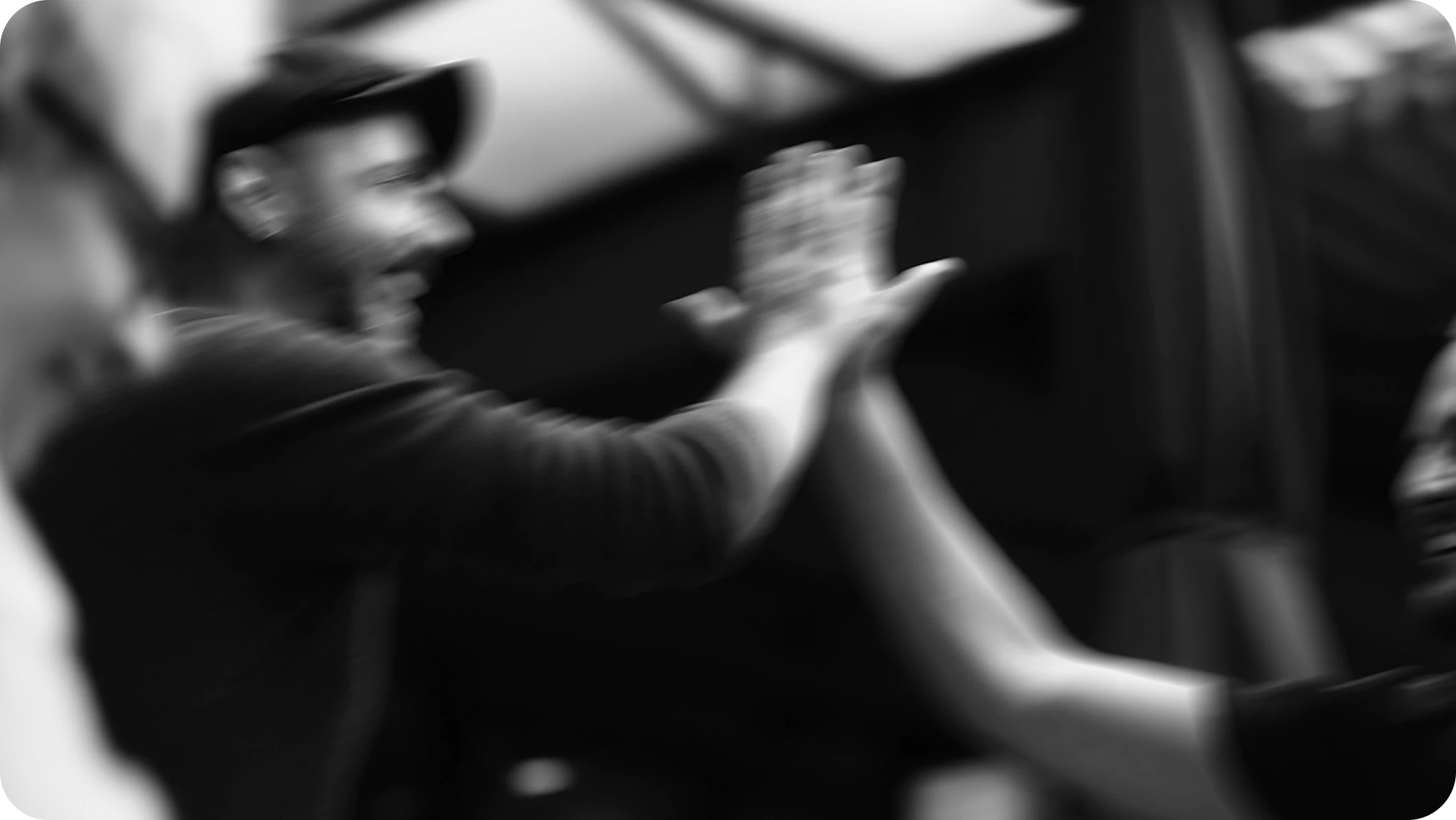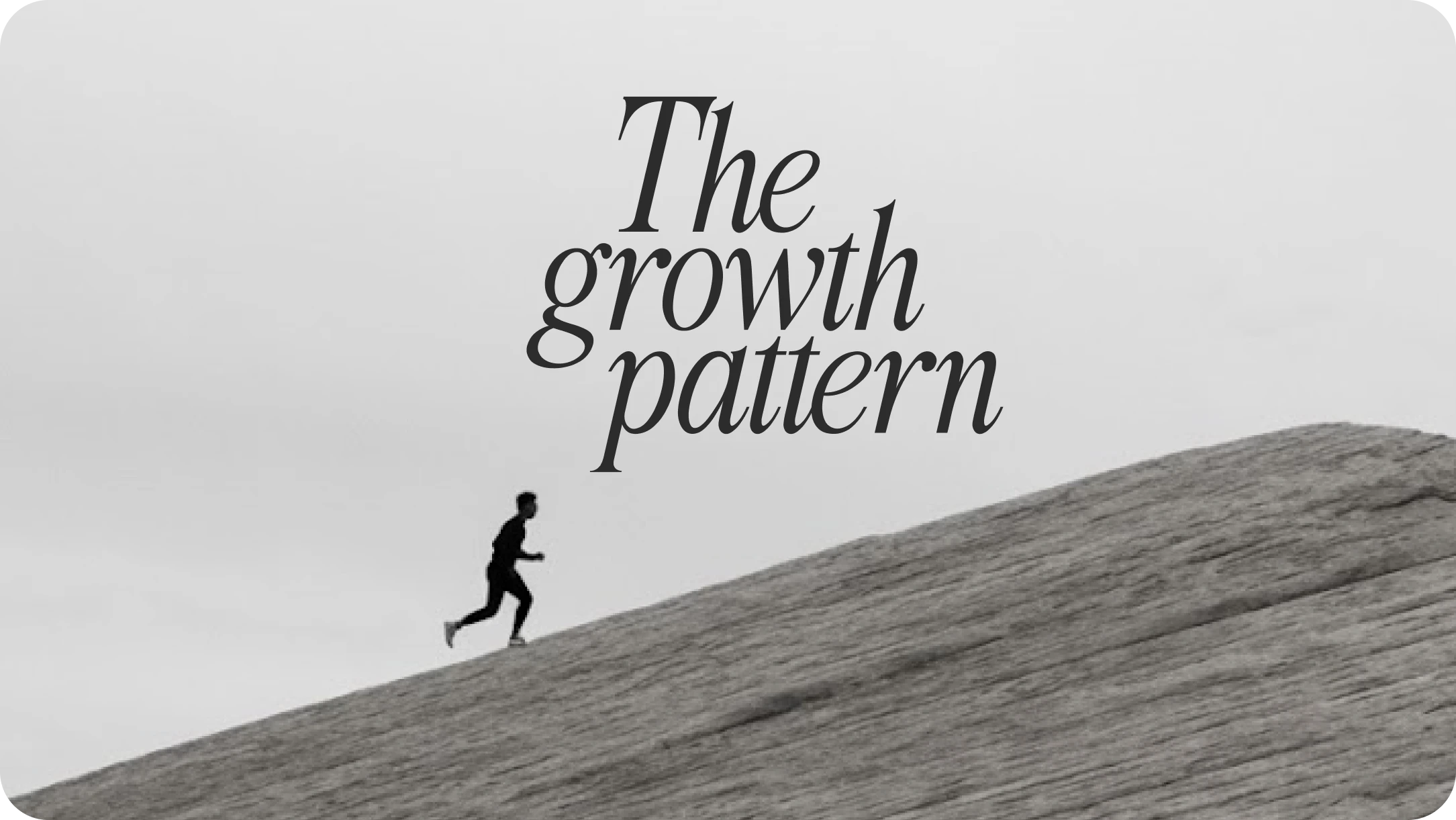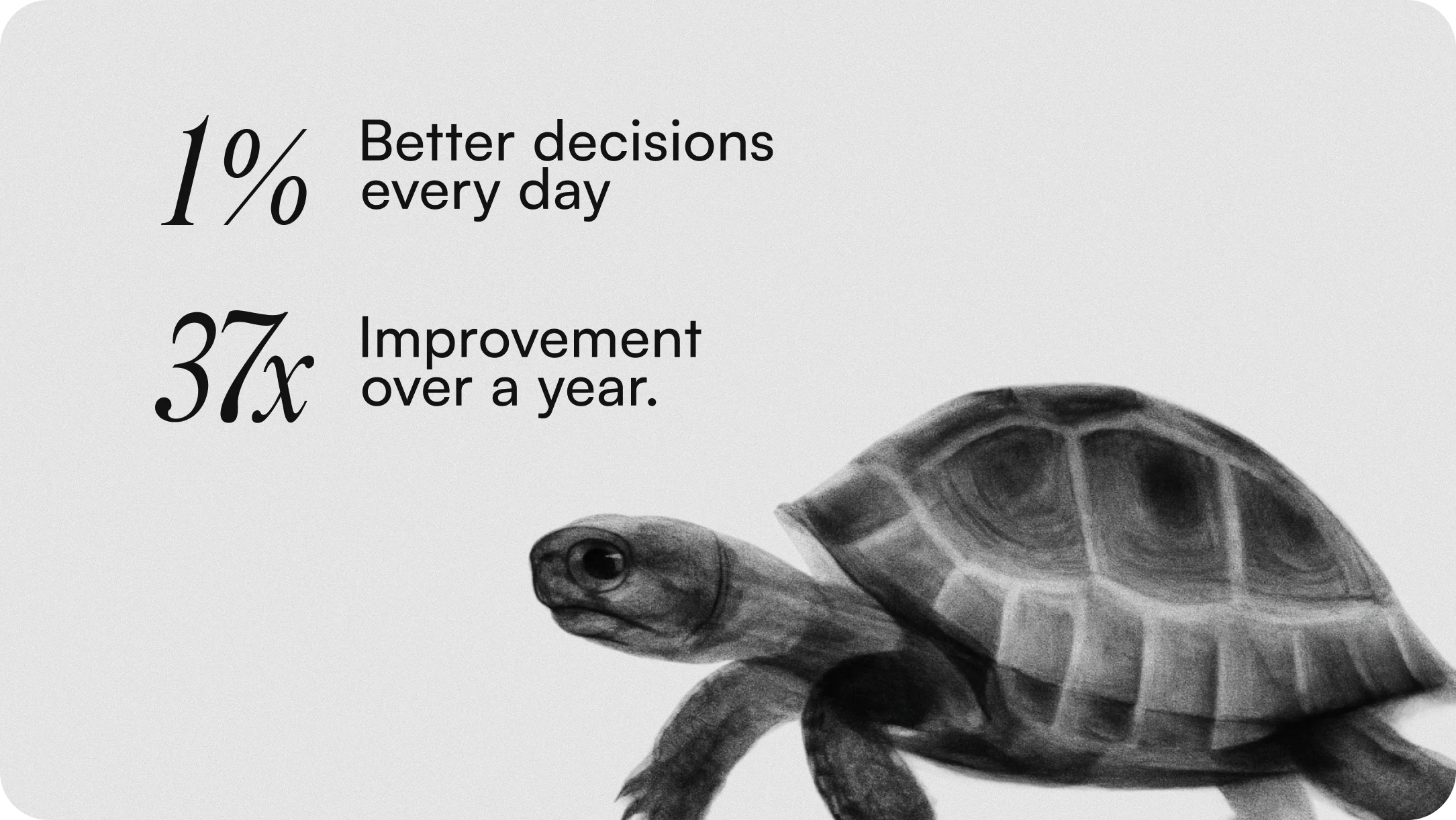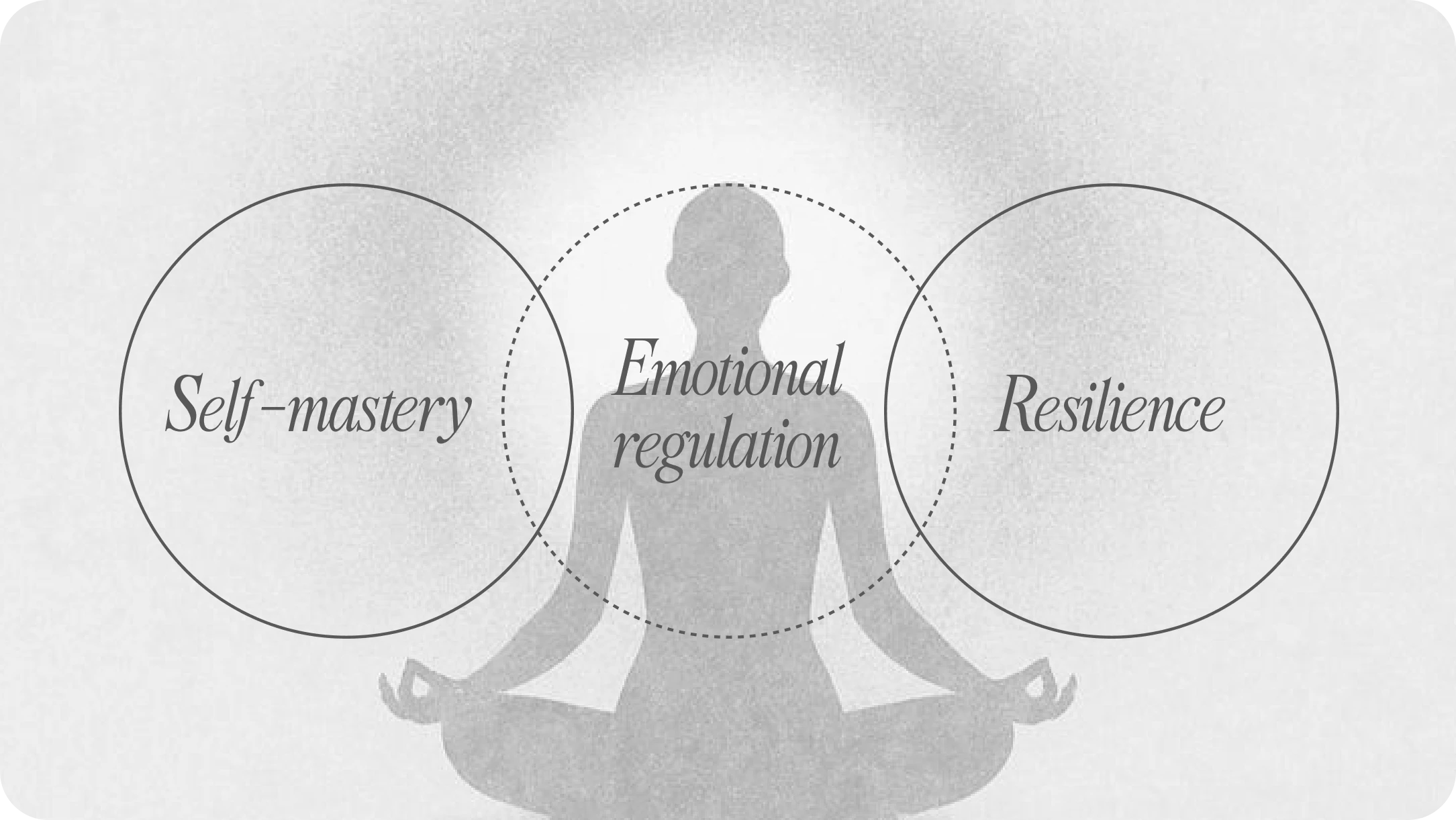
Be patient with it to reap benefits in the long run
It’s tempting to glamorise risk, hustle, and constant adaptation in startup culture, but what if the key to sustained achievement isn’t chasing the next big thing? Everything new, like the latest AI tools, viral growth hacks, and innovative strategies that promise 10x results, may all look sexy and promising, but are not always productive. The real edge, for those leading in unpredictable markets, might not be excitement, but embracing the boring routines, rituals, and automated decisions…some even outdated.
I myself learned this not by choice but by compulsion when chaos forced me to choose the boring. While everyone else around me was optimising for interesting things, I started optimising for processes that were manageable. And the difference gave me benefits that compounded faster than I expected.
From complexity to simplicity
Why this mattered is because just like any lifeform, companies too grow organically and need the right kind of ecosystem to thrive. Post-Series B, our leadership team had ballooned from 4 to 9 people, with each new leader bringing in expertise, ambition, and, inevitably, their own priorities as well. Then COVID hit. Suddenly, we were remote, navigating a pandemic, and making one of the biggest strategic shifts a company can make. We pivoted from B2B SaaS to fintech lending. New business model, new regulations, new everything.
The result? Chaos.
Meetings that used to take 30 minutes now took 2 hours because everyone needed context. Decisions that used to be straightforward now had 6 stakeholders with conflicting opinions. Everyone had legitimate priorities. Everyone had strong perspectives. And no matter how hard I worked - 14-hour days, weekends, constant availability - I was always running behind. I couldn't be the flashy CEO anymore, making bold moves and inspiring speeches. I was just trying to keep the machine from flying apart. That's when I realised I couldn't outwork the complexity. I had to work around it and with time-tested, simple processes.

The boring habit that changed everything
Every Monday morning for 7 years, I ran the same leadership meeting.
Same time: 9 am.
Same people: My direct reports leading technology, sales, operations, and other functions.
Same agenda: Week's wins, challenges each function faced, cross-functional dependencies
My team pushed back constantly in the early days.
"We could be doing other things."
"This feels inefficient when we're all slammed."
"Do we really need this every single week?"
They weren't wrong about being busy. But they were wrong about the meeting. Because here's what they couldn't see: The invisible value in the meeting. They could not measure the misalignment that was prevented. They could not see the communication breakdown that didn't happen because everyone already had context. That could not quantify the trust that was building week by week in the meetings. Of course, there were always "more important" things to do. But I kept it boring. Same time. Same format. No exceptions.

What actually changed
By year 2, something shifted.
Decisions that used to require three days of Slack threads and follow-up meetings got resolved in the Monday meeting. Not because we got smarter, but because everyone already had the context. By year 3, cross-functional alignment became automatic. Sales understood the technology constraints. Technology understood customer pain points. Operations knew what everyone needed before they asked. By year 5, new leaders joining the company would comment: "Your team is remarkably aligned compared to my last company."
The specific outcomes:
Faster decision-making
context was pre-loaded, not rebuilt from scratch each time.
More empathy across functions
people understood each other's challenges and constraints.
Fewer communication breakdowns
small issues got flagged early, before becoming crises.
Deeper ownership
everyone felt part of the decisions, not just executors of them.
But here's the critical part: None of this was obvious in month 3. Or month 6. Or even year 1. The Monday meeting that felt like a waste of time became the foundation for how we operated years later.

The pattern across all boring habits
This same invisible-to-dramatic pattern shows up everywhere:
Sleep schedule:
Boring:
Bed at 9 pm, wake at 5 am, every single day.
Invisible value:
Cognitive capacity, emotional regulation, consistent energy.
Dramatic outcome:
Better judgment under pressure, sustained performance through crisis.
Low-glycemic meals:
Boring:
Same breakfast, same lunch, minimal variety.
Invisible value:
Stable blood sugar, zero decision fatigue on food choices.
Dramatic outcome:
Mental clarity for strategy, energy that doesn't crash at 2 pm.
Morning reflection:
Boring:
10 minutes of writing, same time, every morning.
Invisible value:
Processing yesterday, prioritising today, mental reset.
Dramatic outcome:
Fewer reactive decisions, more intentional leadership.
Each boring habit looks obsessive in isolation. Each one feels unnecessary on any given day. But compound them over the years, and they create advantages that become undeniable.

Why founders resist boring
Instead of structuring both leadership and company culture around meaningful, value-driven routines that shape personal character and collective behaviour, the startup world glorifies the opposite. It celebrates pivot stories, late-night hustle and novel tactics. That’s because boring doesn't make good LinkedIn content. Boring doesn't win at dinner parties when someone asks about your "secret to success." When you say you ran the same Monday meeting for 7 years, people's eyes glaze over. When you say you eat the same meals every day, they think you lack imagination.
But here's what they miss: Every novel decision is a withdrawal from your cognitive capacity. Every "what should we do this time?" drains the mental reserves you need for actual strategy.
The science of why boring works
Your prefrontal cortex, the part of your brain responsible for decision-making, planning, and self-control, has limited capacity. Decision fatigue research shows that every choice you make, no matter how small, depletes this capacity. By the end of a day full of decisions, your judgment degrades. You make worse choices. You default to the easy path.
This is why:
- Judges are more likely to grant parole early in the day than late.
- Emergency room doctors make more diagnostic errors as their shifts progress.
- You're more likely to order unhealthy food after a day of meetings.
Boring habits don't drain this capacity, but they preserve it.When you automate the decision about when to sleep, what to eat, or whether to have the Monday meeting, you're not being rigid. You're preserving cognitive resources for decisions that actually matter.
The compounding math is simple: If you make 1% better decisions every day because you're not decision-fatigued, that's 37x improvement over a year. But - and this is the invisible part - the first six months feel like nothing is changing. Your brain mistakes "slow early gains" for "not working." That's exactly when most founders quit the boring thing and go chase something new.

The age-old mantra of rigour
Routines like consistent sleep schedules, a set office routine, and blocking time for reflection are not signs of laziness, but hallmarks of clarity and decision stamina. Even ancient Indian philosophy understood this long ago. The Arthashastra, for example, prescribed daily schedules for kings that split the day into blocks of focused work, reflection, ritual, and rest, ensuring leaders stayed alert, healthy, and wise. Rituals like mantra chanting, regulated breathwork, and personal study were not distractions but cultivated self-mastery, emotional regulation, and resilience. Ancient texts like the Manusmriti and the Upanishads prescribe early morning meditation as a way to clear the mind before engaging in worldly pursuits. Similarly, Ayurveda classic Charaka Samhita and Arthashastra emphasise the power of splitting the day into blocks for specific activities: work, study, rest, and reflection. Bhagavad Gita and the Upanishads highlight ‘svadhyaya’, the daily self-study or philosophical reflection. For founders, this means regular journaling, reviewing lessons learned, or reading wisdom literature to build self-awareness and strategic vision.
Even the Chinese philosopher Confucius emphasised that rituals (Li) are not just external ceremonies, but daily acts that shape virtues like trust, humility, benevolence, and integrity. He describes boring routines as anchors in times of stress and ambiguity.
The boring routines are rhythmic actions that shield leaders from decision fatigue and boost resilience. Routines aren’t just about efficiency but about freeing mental bandwidth for strategy, innovation, and crisis management.

How to use this information
Pick your boring habits and remove every barrier to doing them:
If you're leading a startup team:
- Block the same 60-minute leadership meeting every Monday morning. Put it in everyone's calendar as required.
- Create a standard agenda: Week's wins, challenges each function faces, cross-functional dependencies.
- Track one metric: How many critical decisions get made without needing follow-up meetings?
If you're optimising for founder performance:
- Set your sleep schedule (e.g., 9 pm-5 am) and protect it like you protect board meetings. Set phone alarms.
- Prep the same 3 low-glycemic meals on Sunday for the week ahead. Eliminate the decision entirely.
- Block 10 minutes every morning for reflection before opening any browsers or Slack. Make it automatic.
If you're building organisational muscle memory:
- Create delivery checklists for your core processes (sales calls, customer onboarding, product releases).
- Run the same weekly retrospective every Friday at 4 pm (same format, same questions, no exceptions).
- Document what worked/what didn't in a shared doc. Review quarterly for patterns, not weekly for reactions.
The key isn't just doing these boring things. It's removing every possible barrier that might prevent you from doing them.
Decisive arithmetics
Your team will want to skip the boring meeting when things get busy.
Your body will resist the boring sleep schedule when you're "on a roll" at 11 pm.
Your mind will say the boring morning reflection isn't moving the needle fast enough.
And on any given day, they might be right.
But compound those boring habits over 12 months? Over 3 years? Over 7 years?
The Monday meeting that felt like a waste in month 3 becomes the reason you make better decisions in year 3.
The sleep schedule that feels unnecessarily strict becomes the reason you don't burn out when everyone else does.
The same meals become the reason you have energy for strategic thinking instead of spending it on food decisions.
Long-term value is built on processes. For founders, the hidden power lies in stability, habits, rituals, and automation that create space for audacity without burning out. Audit your day.
Identify the boring rituals you can embrace, and watch your productivity soar.
Boring habits lead to dramatic value.
But the value is invisible until it's not.
Let boring be your new badge of brilliance!
Be patient with it to reap benefits in the long run
It’s tempting to glamorise risk, hustle, and constant adaptation in startup culture, but what if the key to sustained achievement isn’t chasing the next big thing? Everything new, like the latest AI tools, viral growth hacks, and innovative strategies that promise 10x results, may all look sexy and promising, but are not always productive. The real edge, for those leading in unpredictable markets, might not be excitement, but embracing the boring routines, rituals, and automated decisions…some even outdated.
I myself learned this not by choice but by compulsion when chaos forced me to choose the boring. While everyone else around me was optimising for interesting things, I started optimising for processes that were manageable. And the difference gave me benefits that compounded faster than I expected.
From complexity to simplicity
Why this mattered is because just like any lifeform, companies too grow organically and need the right kind of ecosystem to thrive. Post-Series B, our leadership team had ballooned from 4 to 9 people, with each new leader bringing in expertise, ambition, and, inevitably, their own priorities as well. Then COVID hit. Suddenly, we were remote, navigating a pandemic, and making one of the biggest strategic shifts a company can make. We pivoted from B2B SaaS to fintech lending. New business model, new regulations, new everything.
The result? Chaos.
Meetings that used to take 30 minutes now took 2 hours because everyone needed context. Decisions that used to be straightforward now had 6 stakeholders with conflicting opinions. Everyone had legitimate priorities. Everyone had strong perspectives. And no matter how hard I worked - 14-hour days, weekends, constant availability - I was always running behind. I couldn't be the flashy CEO anymore, making bold moves and inspiring speeches. I was just trying to keep the machine from flying apart. That's when I realised I couldn't outwork the complexity. I had to work around it and with time-tested, simple processes.

The boring habit that changed everything
Every Monday morning for 7 years, I ran the same leadership meeting.
Same time: 9 am.
Same people: My direct reports leading technology, sales, operations, and other functions.
Same agenda: Week's wins, challenges each function faced, cross-functional dependencies
My team pushed back constantly in the early days.
"We could be doing other things."
"This feels inefficient when we're all slammed."
"Do we really need this every single week?"
They weren't wrong about being busy. But they were wrong about the meeting. Because here's what they couldn't see: The invisible value in the meeting. They could not measure the misalignment that was prevented. They could not see the communication breakdown that didn't happen because everyone already had context. That could not quantify the trust that was building week by week in the meetings. Of course, there were always "more important" things to do. But I kept it boring. Same time. Same format. No exceptions.

What actually changed
By year 2, something shifted.
Decisions that used to require three days of Slack threads and follow-up meetings got resolved in the Monday meeting. Not because we got smarter, but because everyone already had the context. By year 3, cross-functional alignment became automatic. Sales understood the technology constraints. Technology understood customer pain points. Operations knew what everyone needed before they asked. By year 5, new leaders joining the company would comment: "Your team is remarkably aligned compared to my last company."
The specific outcomes:
Faster decision-making
context was pre-loaded, not rebuilt from scratch each time.
More empathy across functions
people understood each other's challenges and constraints.
Fewer communication breakdowns
small issues got flagged early, before becoming crises.
Deeper ownership
everyone felt part of the decisions, not just executors of them.
But here's the critical part: None of this was obvious in month 3. Or month 6. Or even year 1. The Monday meeting that felt like a waste of time became the foundation for how we operated years later.

The pattern across all boring habits
This same invisible-to-dramatic pattern shows up everywhere:
Sleep schedule:
Boring:
Bed at 9 pm, wake at 5 am, every single day.
Invisible value:
Cognitive capacity, emotional regulation, consistent energy.
Dramatic outcome:
Better judgment under pressure, sustained performance through crisis.
Low-glycemic meals:
Boring:
Same breakfast, same lunch, minimal variety.
Invisible value:
Stable blood sugar, zero decision fatigue on food choices.
Dramatic outcome:
Mental clarity for strategy, energy that doesn't crash at 2 pm.
Morning reflection:
Boring:
10 minutes of writing, same time, every morning.
Invisible value:
Processing yesterday, prioritising today, mental reset.
Dramatic outcome:
Fewer reactive decisions, more intentional leadership.
Each boring habit looks obsessive in isolation. Each one feels unnecessary on any given day. But compound them over the years, and they create advantages that become undeniable.

Why founders resist boring
Instead of structuring both leadership and company culture around meaningful, value-driven routines that shape personal character and collective behaviour, the startup world glorifies the opposite. It celebrates pivot stories, late-night hustle and novel tactics. That’s because boring doesn't make good LinkedIn content. Boring doesn't win at dinner parties when someone asks about your "secret to success." When you say you ran the same Monday meeting for 7 years, people's eyes glaze over. When you say you eat the same meals every day, they think you lack imagination.
But here's what they miss: Every novel decision is a withdrawal from your cognitive capacity. Every "what should we do this time?" drains the mental reserves you need for actual strategy.
The science of why boring works
Your prefrontal cortex, the part of your brain responsible for decision-making, planning, and self-control, has limited capacity. Decision fatigue research shows that every choice you make, no matter how small, depletes this capacity. By the end of a day full of decisions, your judgment degrades. You make worse choices. You default to the easy path.
This is why:
- Judges are more likely to grant parole early in the day than late.
- Emergency room doctors make more diagnostic errors as their shifts progress.
- You're more likely to order unhealthy food after a day of meetings.
Boring habits don't drain this capacity, but they preserve it.When you automate the decision about when to sleep, what to eat, or whether to have the Monday meeting, you're not being rigid. You're preserving cognitive resources for decisions that actually matter.
The compounding math is simple: If you make 1% better decisions every day because you're not decision-fatigued, that's 37x improvement over a year. But - and this is the invisible part - the first six months feel like nothing is changing. Your brain mistakes "slow early gains" for "not working." That's exactly when most founders quit the boring thing and go chase something new.

The age-old mantra of rigour
Routines like consistent sleep schedules, a set office routine, and blocking time for reflection are not signs of laziness, but hallmarks of clarity and decision stamina. Even ancient Indian philosophy understood this long ago. The Arthashastra, for example, prescribed daily schedules for kings that split the day into blocks of focused work, reflection, ritual, and rest, ensuring leaders stayed alert, healthy, and wise. Rituals like mantra chanting, regulated breathwork, and personal study were not distractions but cultivated self-mastery, emotional regulation, and resilience. Ancient texts like the Manusmriti and the Upanishads prescribe early morning meditation as a way to clear the mind before engaging in worldly pursuits. Similarly, Ayurveda classic Charaka Samhita and Arthashastra emphasise the power of splitting the day into blocks for specific activities: work, study, rest, and reflection. Bhagavad Gita and the Upanishads highlight ‘svadhyaya’, the daily self-study or philosophical reflection. For founders, this means regular journaling, reviewing lessons learned, or reading wisdom literature to build self-awareness and strategic vision.
Even the Chinese philosopher Confucius emphasised that rituals (Li) are not just external ceremonies, but daily acts that shape virtues like trust, humility, benevolence, and integrity. He describes boring routines as anchors in times of stress and ambiguity.
The boring routines are rhythmic actions that shield leaders from decision fatigue and boost resilience. Routines aren’t just about efficiency but about freeing mental bandwidth for strategy, innovation, and crisis management.

How to use this information
Pick your boring habits and remove every barrier to doing them:
If you're leading a startup team:
- Block the same 60-minute leadership meeting every Monday morning. Put it in everyone's calendar as required.
- Create a standard agenda: Week's wins, challenges each function faces, cross-functional dependencies.
- Track one metric: How many critical decisions get made without needing follow-up meetings?
If you're optimising for founder performance:
- Set your sleep schedule (e.g., 9 pm-5 am) and protect it like you protect board meetings. Set phone alarms.
- Prep the same 3 low-glycemic meals on Sunday for the week ahead. Eliminate the decision entirely.
- Block 10 minutes every morning for reflection before opening any browsers or Slack. Make it automatic.
If you're building organisational muscle memory:
- Create delivery checklists for your core processes (sales calls, customer onboarding, product releases).
- Run the same weekly retrospective every Friday at 4 pm (same format, same questions, no exceptions).
- Document what worked/what didn't in a shared doc. Review quarterly for patterns, not weekly for reactions.
The key isn't just doing these boring things. It's removing every possible barrier that might prevent you from doing them.
Decisive arithmetics
Your team will want to skip the boring meeting when things get busy.
Your body will resist the boring sleep schedule when you're "on a roll" at 11 pm.
Your mind will say the boring morning reflection isn't moving the needle fast enough.
And on any given day, they might be right.
But compound those boring habits over 12 months? Over 3 years? Over 7 years?
The Monday meeting that felt like a waste in month 3 becomes the reason you make better decisions in year 3.
The sleep schedule that feels unnecessarily strict becomes the reason you don't burn out when everyone else does.
The same meals become the reason you have energy for strategic thinking instead of spending it on food decisions.
Long-term value is built on processes. For founders, the hidden power lies in stability, habits, rituals, and automation that create space for audacity without burning out. Audit your day.
Identify the boring rituals you can embrace, and watch your productivity soar.
Boring habits lead to dramatic value.
But the value is invisible until it's not.
Let boring be your new badge of brilliance!

Be patient with it to reap benefits in the long run
It’s tempting to glamorise risk, hustle, and constant adaptation in startup culture, but what if the key to sustained achievement isn’t chasing the next big thing? Everything new, like the latest AI tools, viral growth hacks, and innovative strategies that promise 10x results, may all look sexy and promising, but are not always productive. The real edge, for those leading in unpredictable markets, might not be excitement, but embracing the boring routines, rituals, and automated decisions…some even outdated.
I myself learned this not by choice but by compulsion when chaos forced me to choose the boring. While everyone else around me was optimising for interesting things, I started optimising for processes that were manageable. And the difference gave me benefits that compounded faster than I expected.
From complexity to simplicity
Why this mattered is because just like any lifeform, companies too grow organically and need the right kind of ecosystem to thrive. Post-Series B, our leadership team had ballooned from 4 to 9 people, with each new leader bringing in expertise, ambition, and, inevitably, their own priorities as well. Then COVID hit. Suddenly, we were remote, navigating a pandemic, and making one of the biggest strategic shifts a company can make. We pivoted from B2B SaaS to fintech lending. New business model, new regulations, new everything.
The result? Chaos.
Meetings that used to take 30 minutes now took 2 hours because everyone needed context. Decisions that used to be straightforward now had 6 stakeholders with conflicting opinions. Everyone had legitimate priorities. Everyone had strong perspectives. And no matter how hard I worked - 14-hour days, weekends, constant availability - I was always running behind. I couldn't be the flashy CEO anymore, making bold moves and inspiring speeches. I was just trying to keep the machine from flying apart. That's when I realised I couldn't outwork the complexity. I had to work around it and with time-tested, simple processes.

The boring habit that changed everything
Every Monday morning for 7 years, I ran the same leadership meeting.
Same time: 9 am.
Same people: My direct reports leading technology, sales, operations, and other functions.
Same agenda: Week's wins, challenges each function faced, cross-functional dependencies
My team pushed back constantly in the early days.
"We could be doing other things."
"This feels inefficient when we're all slammed."
"Do we really need this every single week?"
They weren't wrong about being busy. But they were wrong about the meeting. Because here's what they couldn't see: The invisible value in the meeting. They could not measure the misalignment that was prevented. They could not see the communication breakdown that didn't happen because everyone already had context. That could not quantify the trust that was building week by week in the meetings. Of course, there were always "more important" things to do. But I kept it boring. Same time. Same format. No exceptions.

What actually changed
By year 2, something shifted.
Decisions that used to require three days of Slack threads and follow-up meetings got resolved in the Monday meeting. Not because we got smarter, but because everyone already had the context. By year 3, cross-functional alignment became automatic. Sales understood the technology constraints. Technology understood customer pain points. Operations knew what everyone needed before they asked. By year 5, new leaders joining the company would comment: "Your team is remarkably aligned compared to my last company."
The specific outcomes:
Faster decision-making
context was pre-loaded, not rebuilt from scratch each time.
More empathy across functions
people understood each other's challenges and constraints.
Fewer communication breakdowns
small issues got flagged early, before becoming crises.
Deeper ownership
everyone felt part of the decisions, not just executors of them.
But here's the critical part: None of this was obvious in month 3. Or month 6. Or even year 1. The Monday meeting that felt like a waste of time became the foundation for how we operated years later.

The pattern across all boring habits
This same invisible-to-dramatic pattern shows up everywhere:
Sleep schedule:
Boring:
Bed at 9 pm, wake at 5 am, every single day.
Invisible value:
Cognitive capacity, emotional regulation, consistent energy.
Dramatic outcome:
Better judgment under pressure, sustained performance through crisis.
Low-glycemic meals:
Boring:
Same breakfast, same lunch, minimal variety.
Invisible value:
Stable blood sugar, zero decision fatigue on food choices.
Dramatic outcome:
Mental clarity for strategy, energy that doesn't crash at 2 pm.
Morning reflection:
Boring:
10 minutes of writing, same time, every morning.
Invisible value:
Processing yesterday, prioritising today, mental reset.
Dramatic outcome:
Fewer reactive decisions, more intentional leadership.
Each boring habit looks obsessive in isolation. Each one feels unnecessary on any given day. But compound them over the years, and they create advantages that become undeniable.

Why founders resist boring
Instead of structuring both leadership and company culture around meaningful, value-driven routines that shape personal character and collective behaviour, the startup world glorifies the opposite. It celebrates pivot stories, late-night hustle and novel tactics. That’s because boring doesn't make good LinkedIn content. Boring doesn't win at dinner parties when someone asks about your "secret to success." When you say you ran the same Monday meeting for 7 years, people's eyes glaze over. When you say you eat the same meals every day, they think you lack imagination.
But here's what they miss: Every novel decision is a withdrawal from your cognitive capacity. Every "what should we do this time?" drains the mental reserves you need for actual strategy.
The science of why boring works
Your prefrontal cortex, the part of your brain responsible for decision-making, planning, and self-control, has limited capacity. Decision fatigue research shows that every choice you make, no matter how small, depletes this capacity. By the end of a day full of decisions, your judgment degrades. You make worse choices. You default to the easy path.
This is why:
- Judges are more likely to grant parole early in the day than late.
- Emergency room doctors make more diagnostic errors as their shifts progress.
- You're more likely to order unhealthy food after a day of meetings.
Boring habits don't drain this capacity, but they preserve it.When you automate the decision about when to sleep, what to eat, or whether to have the Monday meeting, you're not being rigid. You're preserving cognitive resources for decisions that actually matter.
The compounding math is simple: If you make 1% better decisions every day because you're not decision-fatigued, that's 37x improvement over a year. But - and this is the invisible part - the first six months feel like nothing is changing. Your brain mistakes "slow early gains" for "not working." That's exactly when most founders quit the boring thing and go chase something new.

The age-old mantra of rigour
Routines like consistent sleep schedules, a set office routine, and blocking time for reflection are not signs of laziness, but hallmarks of clarity and decision stamina. Even ancient Indian philosophy understood this long ago. The Arthashastra, for example, prescribed daily schedules for kings that split the day into blocks of focused work, reflection, ritual, and rest, ensuring leaders stayed alert, healthy, and wise. Rituals like mantra chanting, regulated breathwork, and personal study were not distractions but cultivated self-mastery, emotional regulation, and resilience. Ancient texts like the Manusmriti and the Upanishads prescribe early morning meditation as a way to clear the mind before engaging in worldly pursuits. Similarly, Ayurveda classic Charaka Samhita and Arthashastra emphasise the power of splitting the day into blocks for specific activities: work, study, rest, and reflection. Bhagavad Gita and the Upanishads highlight ‘svadhyaya’, the daily self-study or philosophical reflection. For founders, this means regular journaling, reviewing lessons learned, or reading wisdom literature to build self-awareness and strategic vision.
Even the Chinese philosopher Confucius emphasised that rituals (Li) are not just external ceremonies, but daily acts that shape virtues like trust, humility, benevolence, and integrity. He describes boring routines as anchors in times of stress and ambiguity.
The boring routines are rhythmic actions that shield leaders from decision fatigue and boost resilience. Routines aren’t just about efficiency but about freeing mental bandwidth for strategy, innovation, and crisis management.

How to use this information
Pick your boring habits and remove every barrier to doing them:
If you're leading a startup team:
- Block the same 60-minute leadership meeting every Monday morning. Put it in everyone's calendar as required.
- Create a standard agenda: Week's wins, challenges each function faces, cross-functional dependencies.
- Track one metric: How many critical decisions get made without needing follow-up meetings?
If you're optimising for founder performance:
- Set your sleep schedule (e.g., 9 pm-5 am) and protect it like you protect board meetings. Set phone alarms.
- Prep the same 3 low-glycemic meals on Sunday for the week ahead. Eliminate the decision entirely.
- Block 10 minutes every morning for reflection before opening any browsers or Slack. Make it automatic.
If you're building organisational muscle memory:
- Create delivery checklists for your core processes (sales calls, customer onboarding, product releases).
- Run the same weekly retrospective every Friday at 4 pm (same format, same questions, no exceptions).
- Document what worked/what didn't in a shared doc. Review quarterly for patterns, not weekly for reactions.
The key isn't just doing these boring things. It's removing every possible barrier that might prevent you from doing them.
Decisive arithmetics
Your team will want to skip the boring meeting when things get busy.
Your body will resist the boring sleep schedule when you're "on a roll" at 11 pm.
Your mind will say the boring morning reflection isn't moving the needle fast enough.
And on any given day, they might be right.
But compound those boring habits over 12 months? Over 3 years? Over 7 years?
The Monday meeting that felt like a waste in month 3 becomes the reason you make better decisions in year 3.
The sleep schedule that feels unnecessarily strict becomes the reason you don't burn out when everyone else does.
The same meals become the reason you have energy for strategic thinking instead of spending it on food decisions.
Long-term value is built on processes. For founders, the hidden power lies in stability, habits, rituals, and automation that create space for audacity without burning out. Audit your day.
Identify the boring rituals you can embrace, and watch your productivity soar.
Boring habits lead to dramatic value.
But the value is invisible until it's not.
Let boring be your new badge of brilliance!

Resonating with this philosophy?
Join the smartest founders mastering the inner game to face the unknown. Read by YC & Sequoia.



To be continued…
A small favor...
I don't run ads. If this brought clarity, the biggest favor you can do is subscribe below.




.svg)

.svg)

